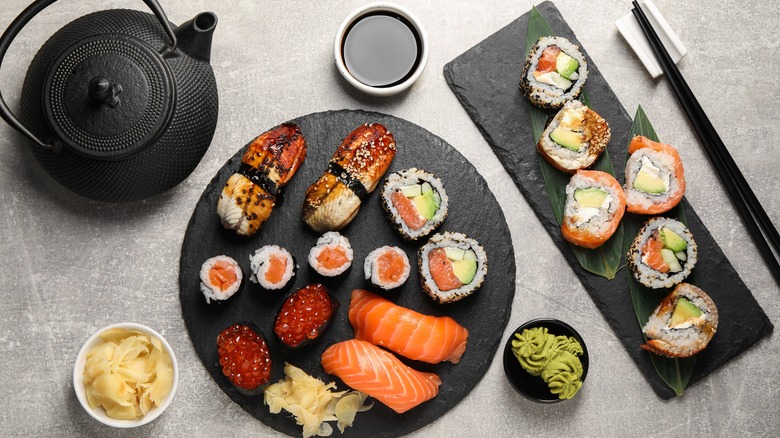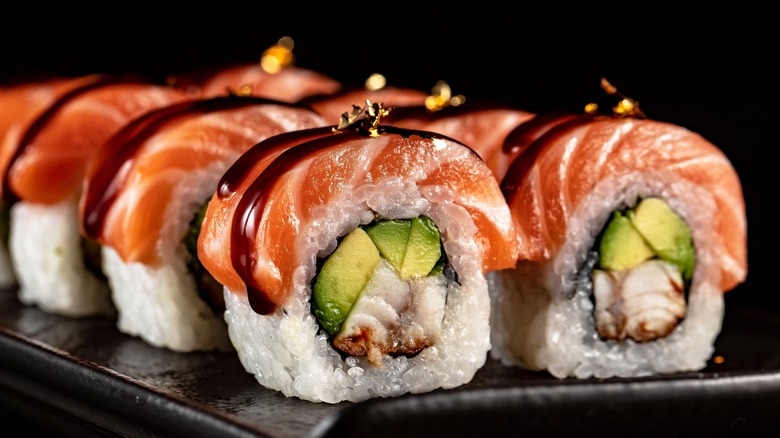Why You Should Never Wear Perfume At A Sushi Restaurant
The Harry Styles song "Music For a Sushi Restaurant" was inspired by an odd experience the singer had while dining out on Japanese cuisine. However, his Pleasing perfume line isn't quite as suitable for the environment. That's no dig at the former boy bander or his scent ventures. As it turns out, fragrances in general may not be welcome at establishments that serve sushi, sashimi, and nigiri, including London's Sushi Kanesaka.
The Michelin-starred restaurant located at the luxury 45 Park Lane hotel "kindly requests" that guests skip out on spritzing themselves with perfume, cologne, or body spray, according to The Telegraph. That may seem like a big ask given that the restaurant's 18-course omakase-style dinner runs around £420 a person, or roughly $540 in U.S. dollars. After all, if someone is paying that much for a meal, they'd probably want to smell their best while eating it, right? However, those fragrances can ultimately be a hindrance to the dining experience because of how important smell is in food.
Believe it or not, the olfactory system is responsible for nearly 80% of what we taste. Therefore, if you get a big whiff of perfume before taking a bite, your perception of what you're eating can be completely different than what the chef intended. At Sushi Kanesaka, the purpose behind the fragrance ban is to ensure that diners are able to take in the scents of the vinegar that is served alongside the sushi as well as the fish itself.
Other flavor-preserving rules to follow when eating sushi
Regardless of whether you're at a high-end establishment like Sushi Kanesaka or are enjoying a casual dinner of kaiten zushi – the conveyor belt-style sushi with a fascinating origin story in a beer factory –- it's best to skip out on dousing yourself in perfume in order to enjoy the flavors of the meal to the fullest. However, should you strongly feel the need to spritz yourself before heading out the door, it is best to go for something extremely subtle with a flavor that makes sense for the setting, such as ginger, and keep it limited to one to two sprays.
Once you arrive at the restaurant, there are a few other guidelines you should know that will help you get the most out of your sushi and preserve its taste. For example, while soy sauce is a popular accompaniment for the Japanese dish, it can be incredibly overpowering, especially to the flavor of the fish. A little bit goes a long way, so only dip a small portion of each piece in the condiment, and if your sushi is already made with a sauce, you should refrain from using soy sauce altogether. Similarly, the ginger that is served alongside sushi is meant to be a palate cleanser in between pieces, but eating too much can end up affecting the flavor of your next bite.

